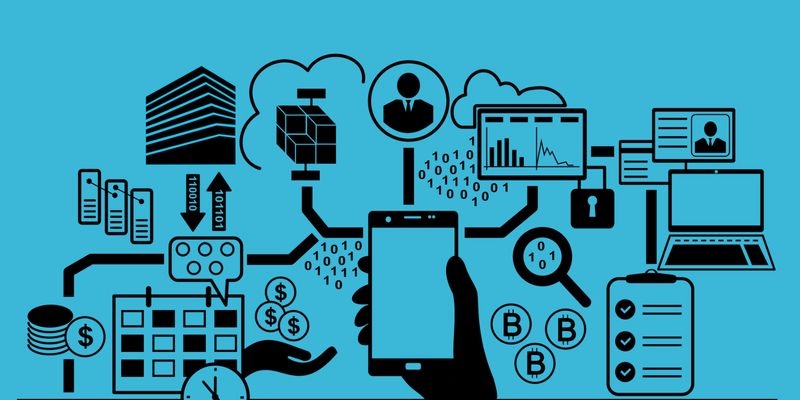The role of blockchain as a fundamental piece in organised retail
The retail industry in India and across the world has been sharing the same pain points for a very long time and the primary source of this was the linear structure in supply chain management and the intricate steps involved in payments. The linear structure was time-consuming and not very secure.
The implementation of blockchain in the retail space promises to be fruitful, for it showcases the potential of being non-linear and secure while being efficient, secure, and decentralized.
Blockchain allows maximum transparency of data down to the minutest detail. For example, in the apparel industry, by adopting blockchain technology, the complete flow of the lifecycle of a product from being raw material to becoming a finished good becomes traceable. This enables consumers to cross-verify its authenticity, and this data that the customer is relying upon cannot be altered with, for it is stored in a decentralized network that is unbreachable. This is one of the many revolutions that the implementation of blockchain will bring in the supply chain management of the retail industry.
Blockchain in retail is gaining impetus with its integration with IoT and AI. IoT allows retail storefronts to track the customers who are walking in and provide them with a personalized shopping experience while at a retail store. For example, retail stores can know the customer upon arrival and study their buying patterns to provide an experience like those on e-commerce websites. This not only acts as a bridge between the retail and online space, but also reduces churn for retail stores. This information allows the receiver to use real-time data to make informed and data-driven decisions to offer a better customer-centric approach.

Blockchain has the potential to revolutionize payments and bankings too. SMEs and MSMEs have a lot to benefit from this. Across the world, only 10 percent of the SMEs (Small and Medium business Enterprises) have the financial aid required to expand and increase their reach. It is difficult for them to source lending from financial institutions due to their irregular earning intervals and this forces the financial institutions to charge higher collaterals to safeguard their lending. In an ecosystem of the blockchain, every transaction will be recorded, and financial institutions will be able to profile their applicants on the basis of their income accurately – even without a paper trail.
This in turn will revolutionize the retail space, for SMEs and MSMEs are the backbone of economies. A lot of these will eventually see an amalgam of cryptocurrencies and non-cryptocurrencies.
While India has not come out with its verdict on the use of cryptocurrencies, the future of blockchain and banking lies in the amalgam of security and public ledger systems. The Supreme court’s verdict on RBI’s ban on cryptocurrencies has been extended to August 11. While the nation awaits the verdict, RBI has constituted an inter-departmental body to study this concept, its uses, nuances, and methods to sustain it. The future of blockchain in India definitely looks promising, for the government's efforts to host IBC stands as an exemplar.
How ready is India to adopt blockchain?
India is at a better place today with respect to technology. The penetration of smartphones, 4G, and mobile computing is now resonating from all parts of India, and this in itself is an indicator of India being equipped to adopt the technology of the future.
Current challenges faced by the blockchain community in India
The lack of awareness in people and the regulatory bodies about blockchain is playing a major factor. There is a lot of ambiguity on blockchain and cryptocurrencies. These questions need to be answered, and to address them and spread awareness, Nucleus Vision along with NITI Aayog and Govts. of Telangana and Goa are hosting India’s first ever International Blockchain Congress (IBC) on August 3-4 in Hyderabad, India.
The agenda of the event is to create an umbrella of VCs, thought leaders, startups, talent, faculty, students, and tech giants where they can interact with a like-minded lot and pave the way for India’s future with blockchain. The idea is to encourage more interaction, resolution, and progress to make India ready to become the next big player in the blockchain space.
Subrata Siddhanta is Executive President – Retail Business at Nucleus Vision.
(Disclaimer: The views and opinions expressed in this article are those of the author and do not necessarily reflect the views of YourStory.)











